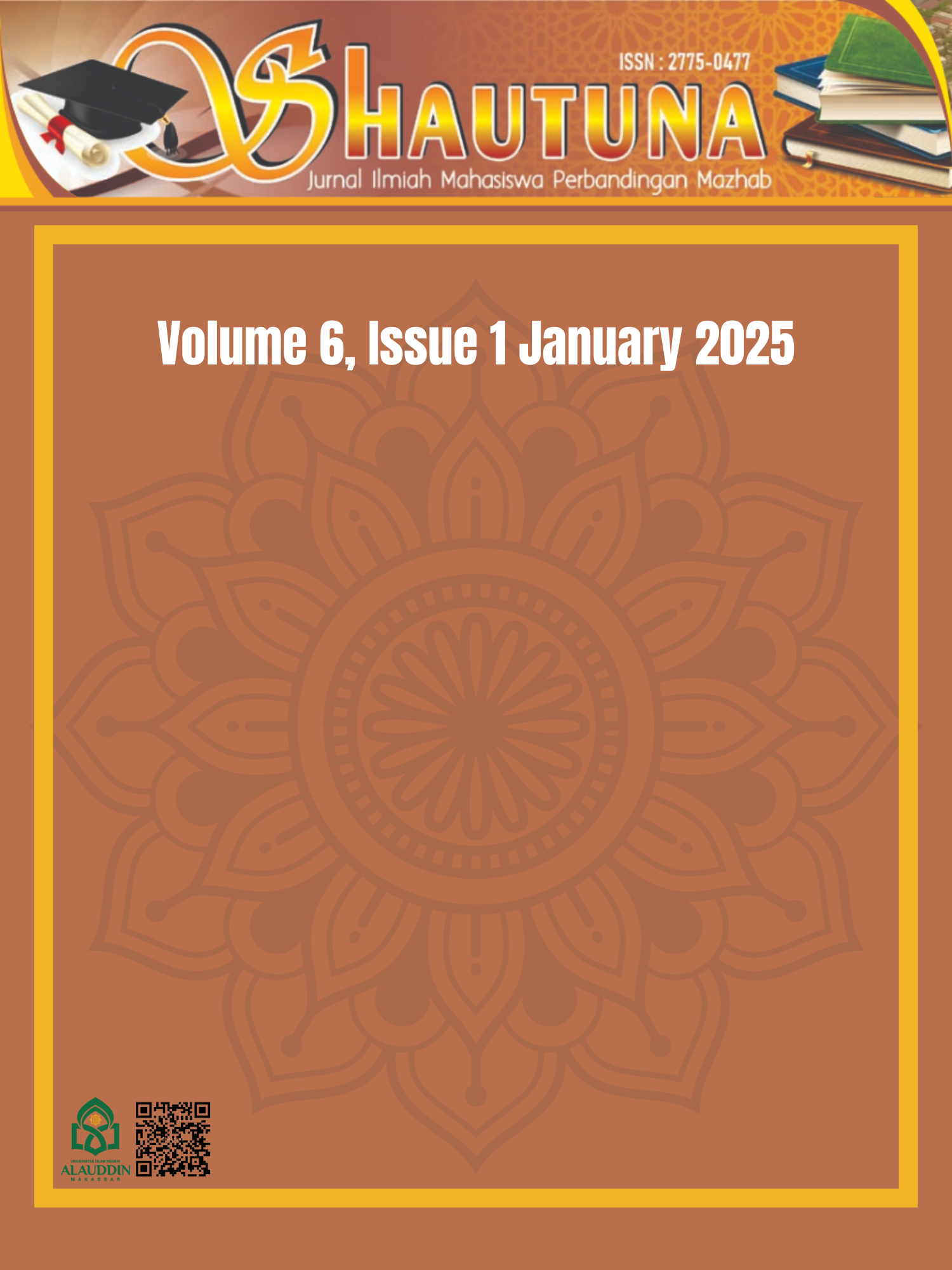Relevance of Islamic Values and Local Wisdom in the Implementation of Maddoa' Tradition in Pinrang Regency
DOI:
https://doi.org/10.24252/shautuna.v6i1.52064Keywords:
Islamic Values, Local Wisdom, Maddoa Tradition'Abstract
This study examines the integration of Islamic values and local wisdom in the Maddoa tradition of Pinrang Regency, Indonesia. Maddoa', a communal prayer ritual, serves not only as a cultural heritage but also as a medium to strengthen collective religious identity and social cohesion. Despite modernization and shifts in the structure of society, these traditions remain important in shaping community interactions and spiritual life. Using a qualitative field research approach, this study seeks to understand in depth the practice and evolution of Maddoa' in contemporary society. This approach allows researchers to explore the social dynamics, symbolic meanings, and changes that occur in these traditions over time. To provide a comprehensive analysis, this study applies a sharia normative framework to examine the extent to which the practice of Maddoa' is in harmony with Islamic principles, both from the theological and legal aspects of Islam. Data was collected through in-depth interviews, participant observations, and document analysis. These findings show that Maddoa' embodies a dynamic blend of Islamic teachings and customs, fostering a collective awareness of gratitude and devotion to Allah SWT. In practice, Maddoa' serves as a means to foster a collective awareness of gratitude and devotion to Allah SWT, strengthening the relationship between individuals and God and their society. More than just a prayer ritual, this tradition strengthens social ties by instilling the values of togetherness, mutual cooperation, and concern between community members. In this context, Maddoa' is not only a cultural heritage, but also a symbol of harmony between local religions and traditions, creating a unique model of synergy in which Islamic values are not only accepted, but also adapted within a cultural framework that has been rooted for centuries. In addition, this tradition also reflects a unique model of religious and cultural synergy. This study contributes to a broader discourse on religious acculturation and the sustainability of local traditions in the face of globalization.
References
Aceh, Abu bakar. Pengantar Ilmu Tarekat; Kajian Historis Tentang Mistik. Solo: Ramadhani, 1993.
Akmal, Andi Muhammad, and Mulham Jaki Asti. “Problematika Nikah Siri, Nikah Online Dan Talak Siri Serta Implikasi Hukumnya Dalam Fikih Nikah.” Al-Risalah Jurnal Ilmu Syariah Dan Hukum 21, no. 1 (2021): 45–59.
Al-hikam, Abu Tauhiid. The Essence Project: Rahasia Manifestasi (Penciptaan). Yogyakarta: Budi Utama, 2019.
An-Najjar, Amir. Psikoterapi Sufistik Dalam Kehidupan Modern, Terj. Ija Suntana. Bandung: Mizan, 2004.
Anggraeni, Dewi, Ahmad Hakam, Izzatul Mardhiah, and Zulkifli Lubis. “Membangun Peradaban Bangsa Melalui Religiusitas Berbasis Budaya Lokal.” Jurnal Studi Al-Qur’an 15, no. 1 (January 31, 2019): 95–116. https://doi.org/10.21009/JSQ.015.1.05.
Anwar, M Ansor. “Islam Sebagai Agama, Kebudayaan Dan Peradaban (Membaca Gagasan Ahmet Karamustafa).” Sumbula: Jurnal Studi Keagamaan, Sosial Dan Budaya 1, no. 2 (2016): 338–51.
Bakry, Muammar Muhammad. “Laws Exegesis versus Jurisprudence (Comparative Studies in Understanding Religious Text and the Istinbath Process of Law on Mahar).” JICSA (Journal of Islamic Civilization in Southeast Asia) 9, no. 1 (2020): 1–21.
Downloads
Published
How to Cite
Issue
Section
License
Copyright (c) 2025 Anugrah Majid, Yahya Yahya, Muhammad Basir, Rian Hidayat

This work is licensed under a Creative Commons Attribution 4.0 International License.









